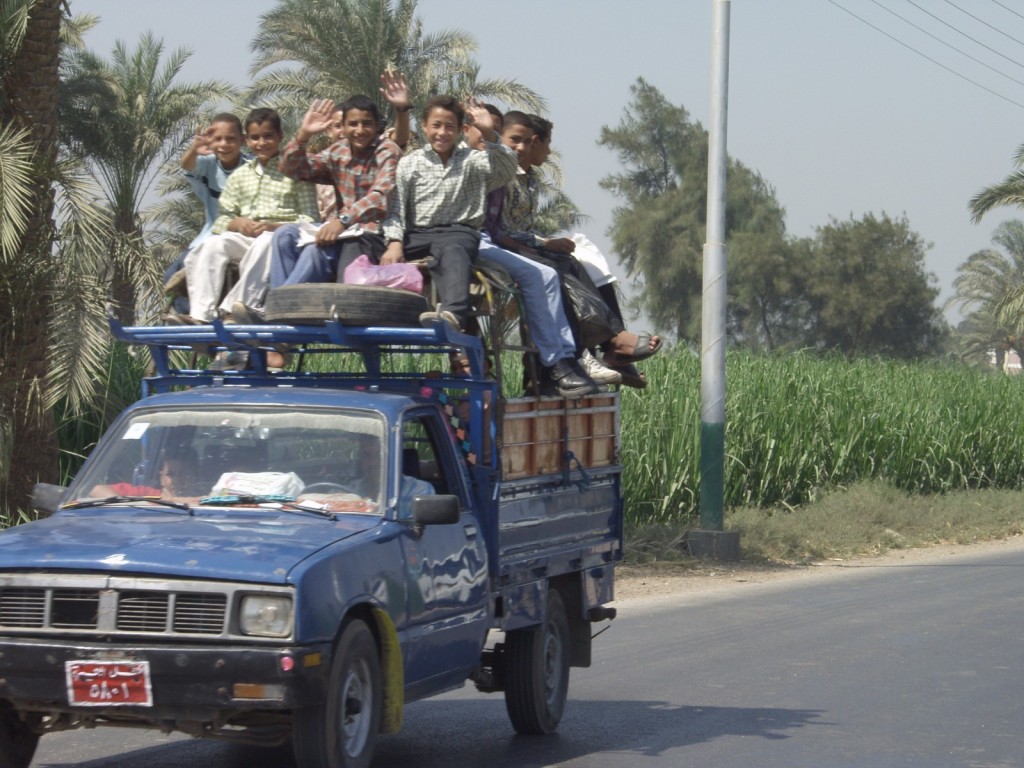Faris is a 44-year-old Egyptian who lives in the outskirts of Cairo in a community of garbage collectors known as Zabaleen.
For many years, Faris and his sons, like many other Zabaleen families, navigated the streets of Cairo, collecting garbage from apartment buildings on their assigned route. After the refuse was loaded in their donkey cart and, in more recent years, their pickup truck, they returned home to spread what they had collected onto the dirt floor of their family home. There, Faris’s wife and daughters helped to sort out the recyclable materials, which were then sold to local businesses.
The compensation that the family received from this work was their only source of income. Like other Zabaleen children, Faris’s sons and daughters left school at an early age in order to help their parents collect and sort the trash.
In recent years, this way of life became even more difficult for Faris and his cohorts. Multinational corporations were hired to manage some of the city’s waste, which forced many Zabaleen to struggle to find alternative ways of supporting their families.
Over the past five years, however, Faris and his fellow garbage collectors have seized new opportunities to enhance their traditional trade. With the help of a generous grant from the Bill & Melinda Gates Foundation, HANDS has been supporting a local partner, the Spirit of Youth, to formalize the work of the Zabaleen and reintegrate them into the city waste collection system. This has involved helping the Zabaleen form a union to organize and represent their interests in the city government, as well as improving the Zabaleen’s ability to engage in more efficient business practices.
This effort has also involved a city-wide campaign to stress the importance of separating waste products into organic and non-organic streams. By encouraging Egyptians across Cairo to separate their garbage, the Zabaleen are able to reduce the cost and time needed to sort the city’s refuse.
HANDS’ partner, the Spirit of Youth, has helped Zabaleen families join together in several garbage collecting and recycling companies. Faris was selected to become the manager of one such company. He and his colleagues learned how to complete the necessary paperwork to launch their company, abide by the applicable laws, and successfully start their small business.
Faris’s company continues to grow and now employs 35 men with 15 trucks. By contracting as a larger company, Faris and his employees are able to earn more money and broaden their reach. Faris credits this partnership for significant improvement, saying that “It is (larger) companies like these that help everyone in the community benefit from cooperation.”
Once a highly marginalized group, the Zabaleen have gained more recognition in Cairo through the efforts of HANDS’ partner, the Spirit of Youth. The Egyptian Ministry of Environment aims to officially recognize the Zabaleen with a formal city contract. The Ministry is in the process of granting the Zabaleen full responsibility for waste collection in parts of Cairo including Mokattam, Zamalek, Maniel, Dokki, Agouza, and Roda and has joined them in their efforts to raise awareness about source segregation.
For Zabaleen families like Faris’ and the 35 other men he employs, these changes mean a brighter future. Their children can attend school regularly without having to worry about helping their parents collect trash on the street. Faris’ sons can begin to build new dreams for themselves, including attending university, a goal that was unimaginable for Faris and his wife.
This story originally appeared in our April 2014 e-Newsletter. If you wish to stay informed about our programs and events, please join our mailing list.


No Comments to "HANDS Update: Zabaleen Livelihoods Program"